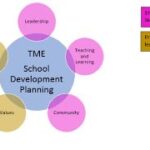Differences between teachers and teacher educators
Differences between teachers and teacher educators: Education is a multifaceted and dynamic field that comprises various roles and responsibilities. Among the key players in this arena are teachers and teacher educators. Though these terms may seem interchangeable, they denote distinct roles with unique functions, skill sets, and objectives. Understanding the differences between teachers and teacher educators is crucial for appreciating their contributions to the education system.
Definition and Roles
Teachers
Teachers are the backbone of the education system, directly responsible for the instruction and development of students in primary, secondary, and sometimes tertiary education settings. Their primary roles include:
- Instructional Delivery: Teachers impart knowledge and skills to students through various pedagogical methods.
- Curriculum Implementation: They follow the curriculum guidelines to ensure that students achieve the required learning outcomes.
- Student Assessment: Teachers evaluate student performance through tests, assignments, and other assessment tools.
- Classroom Management: They create a conducive learning environment by managing student behavior and fostering a positive classroom culture.
- Individual Support: Teachers provide additional help to students who need extra assistance, ensuring inclusive education.
Teacher Educators
Teacher educators, on the other hand, are professionals who train and mentor future teachers. Their roles encompass:
- Teacher Training: They design and deliver teacher education programs in colleges and universities.
- Curriculum Development: Teacher educators develop curricula for teacher training programs, ensuring they meet current educational standards and research findings.
- Research and Scholarship: They research to advance knowledge in education, pedagogy, and teacher training.
- Mentorship and Supervision: Teacher educators mentor student teachers during their practicum, providing guidance and feedback.
- Professional Development: They facilitate ongoing professional development for in-service teachers, helping them stay updated with new teaching strategies and educational technologies.
Educational Requirements
Teachers
To become a teacher, individuals typically need a bachelor’s degree in education or a specific subject area, followed by a teaching certification or license. The requirements can vary by region but generally include:
- Undergraduate Degree: A Bachelor’s degree in Education (B.Ed.) or a subject-specific degree with a teaching certification.
- Teacher Preparation Program: Completing a teacher preparation program, including coursework and a student teaching internship.
- Licensure/Certification: Passing state or national certification exams and meeting other licensure requirements.
Teacher Educators
Teacher educators usually hold advanced degrees and have extensive teaching experience. Their qualifications often include:
- Advanced Degrees: A Master’s degree or Doctorate (Ph.D. or Ed.D.) in Education, Curriculum and Instruction, or a related field.
- Teaching Experience: Several years of successful teaching experience at the primary, secondary, or tertiary level.
- Research Experience: Engagement in educational research, often demonstrated through publications and conference presentations.
Skill Sets
Teachers
The skill sets required for teachers are diverse and aimed at fostering student learning and development. Key skills include:
- Instructional Skills: Proficiency in delivering lessons effectively using various teaching methods.
- Classroom Management: Ability to manage student behavior and create a positive learning environment.
- Communication Skills: Strong verbal and written communication to interact with students, parents, and colleagues.
- Assessment Skills: Competence in designing and implementing assessments to gauge student learning.
- Adaptability: Flexibility to adapt teaching methods to meet the diverse needs of students.
Teacher Educators
Teacher educators require a different set of skills, focusing on the training and development of future teachers. Important skills include:
- Pedagogical Knowledge: Deep understanding of teaching theories, methodologies, and practices.
- Mentorship Abilities: Skill in guiding and supporting student teachers through their training.
- Research Skills: Proficiency in conducting and applying educational research to improve teacher training.
- Curriculum Development: Expertise in designing effective teacher education programs and curricula.
- Professional Development: Ability to facilitate ongoing learning and development for practicing teachers.
Impact on Education
Teachers
Teachers have a direct impact on student learning and development. Their influence extends to:
- Academic Achievement: Teachers play a crucial role in student academic success by delivering quality instruction.
- Social and Emotional Development: They support students’ social and emotional growth by fostering a positive classroom environment and providing guidance.
- Lifelong Learning: Teachers inspire a love for learning and curiosity in students, encouraging them to pursue knowledge beyond the classroom.
Teacher Educators
Teacher educators have a broader, long-term impact on the education system by shaping the quality of future teachers. Their contributions include:
- Teacher Quality: By training competent and effective teachers, they enhance the overall quality of education.
- Educational Research: Their research contributes to the development of new teaching methods and educational policies.
- Professional Standards: Teacher educators help establish and uphold high standards for the teaching profession through their work in teacher preparation and professional development.
Challenges and Opportunities
Teachers
Teachers face several challenges, such as:
- Resource Constraints: Limited access to teaching materials and resources.
- Classroom Diversity: Managing diverse student needs and abilities.
- Workload: Balancing teaching responsibilities with administrative tasks and extracurricular activities.
However, there are also opportunities, such as:
- Professional Growth: Access to ongoing professional development and training.
- Technology Integration: Leveraging educational technology to enhance teaching and learning.
- Collaborative Learning: Engaging in collaborative practices with colleagues to improve instructional strategies.
Teacher Educators
Teacher educators also encounter challenges, including:
- Research Funding: Securing funding for educational research projects.
- Balancing Roles: Managing the dual responsibilities of teaching and research.
- Keeping Current: Staying updated with the latest educational trends and technologies.
Despite these challenges, opportunities for teacher educators include:
- Influence on Policy: Shaping educational policies and practices through research and advocacy.
- Global Collaboration: Engaging in international collaborations to share best practices and innovations in teacher education.
- Leadership Roles: Taking on leadership positions within academic institutions and professional organizations.
Conclusion
While teachers and teacher educators both play vital roles in the education system, their functions, skill sets, and impacts are distinct. Teachers directly influence student learning and development, while teacher educators shape the future of education by training and mentoring the next generation of teachers. Understanding these differences is essential for recognizing the unique contributions each group makes to the field of education. By supporting both teachers and teacher educators, we can ensure a robust and effective education system that meets the needs of all learners.




